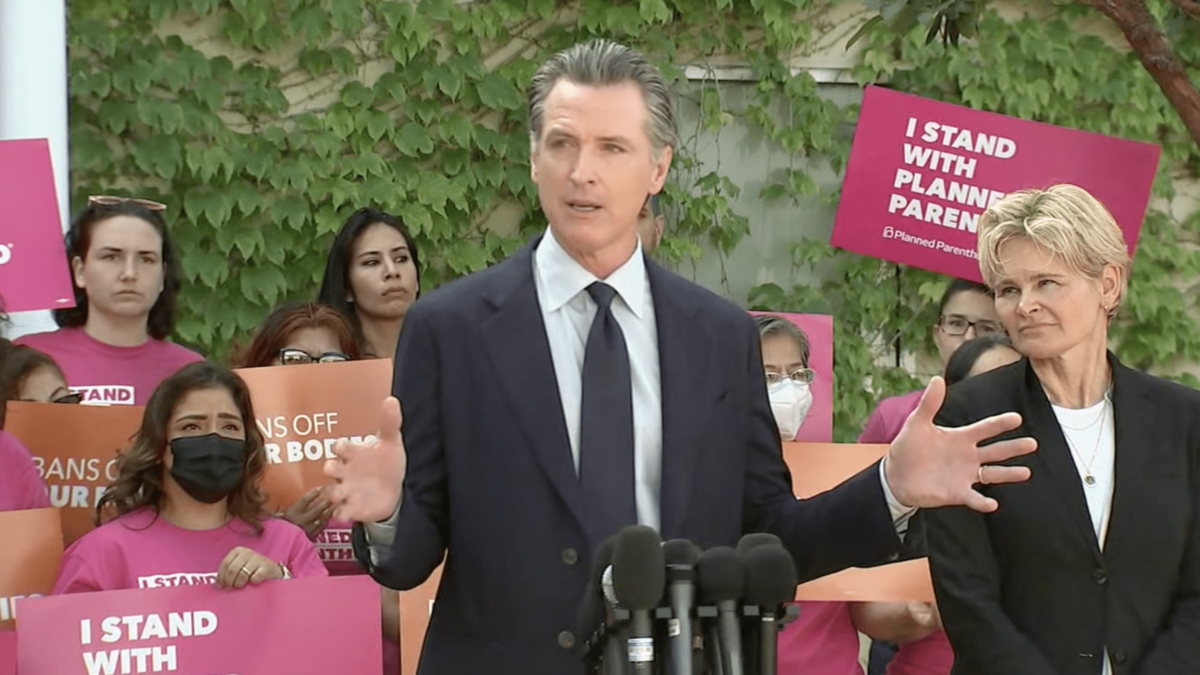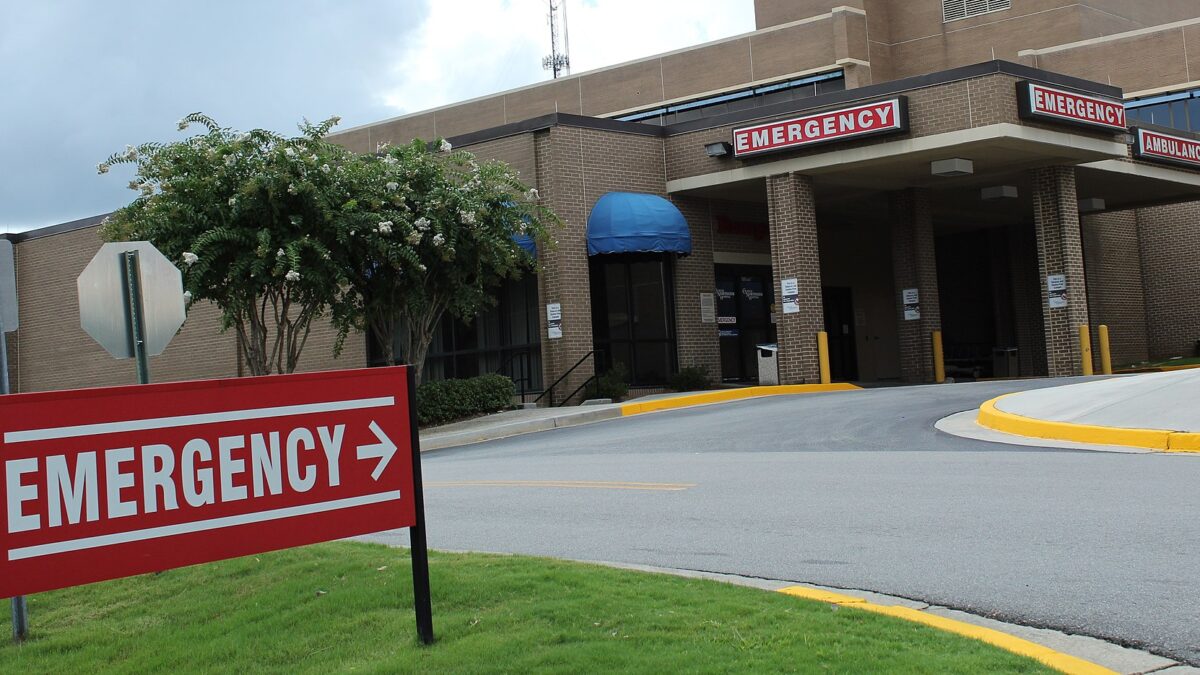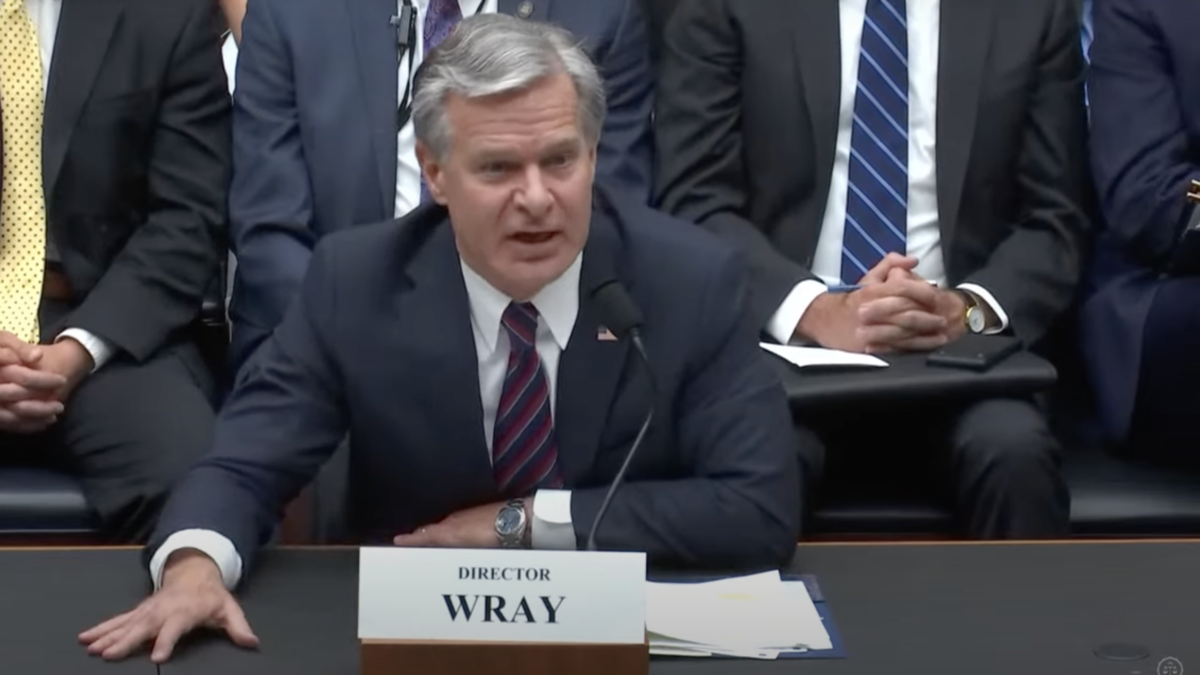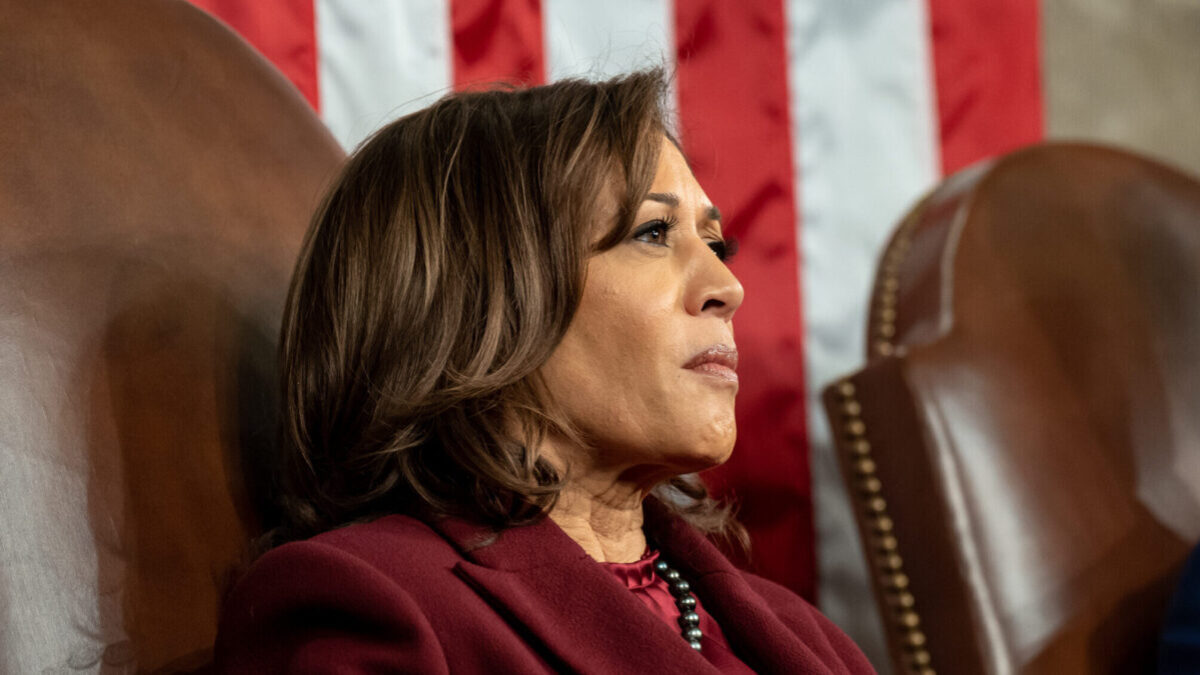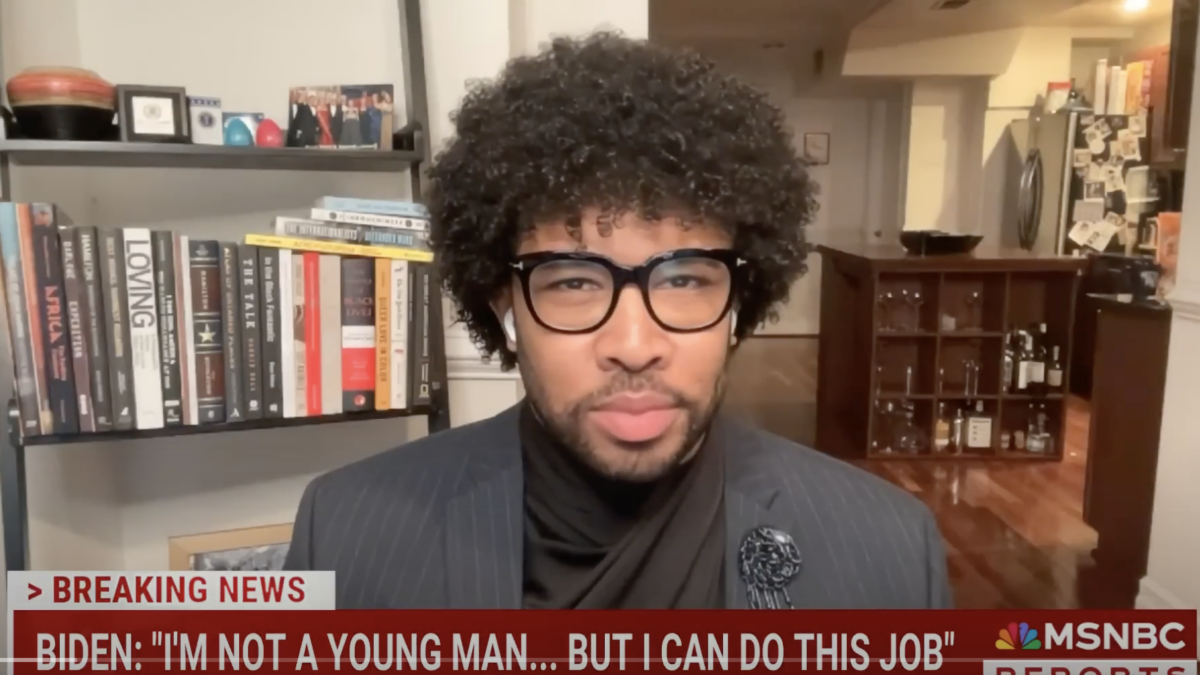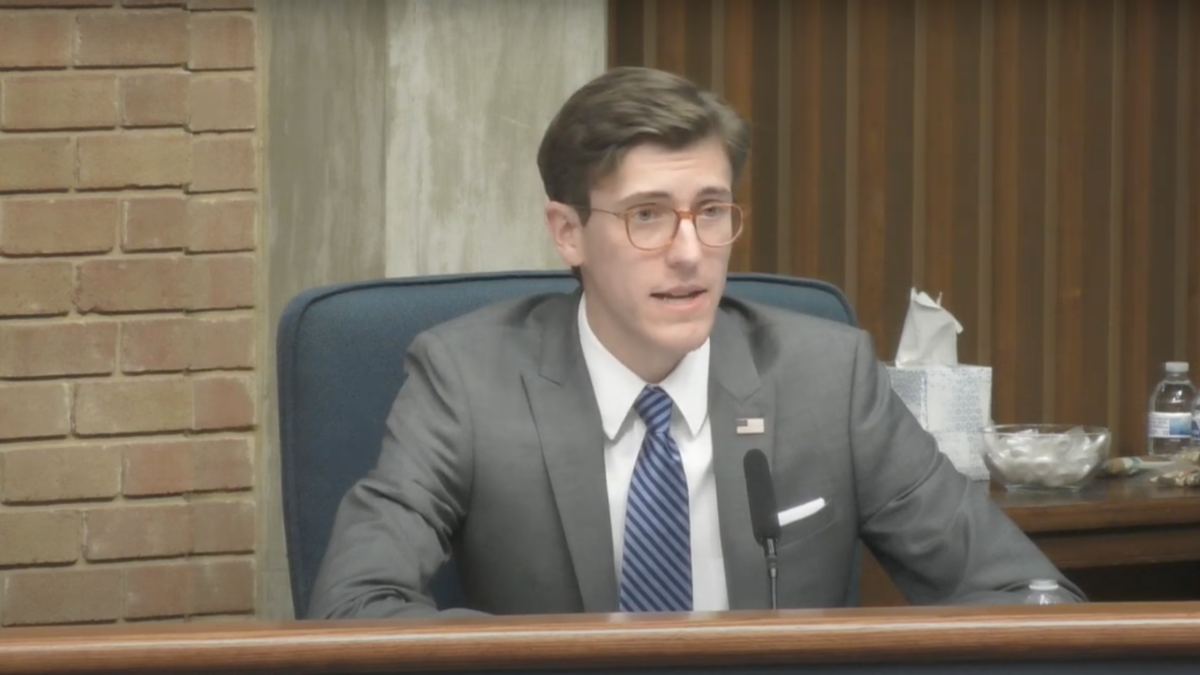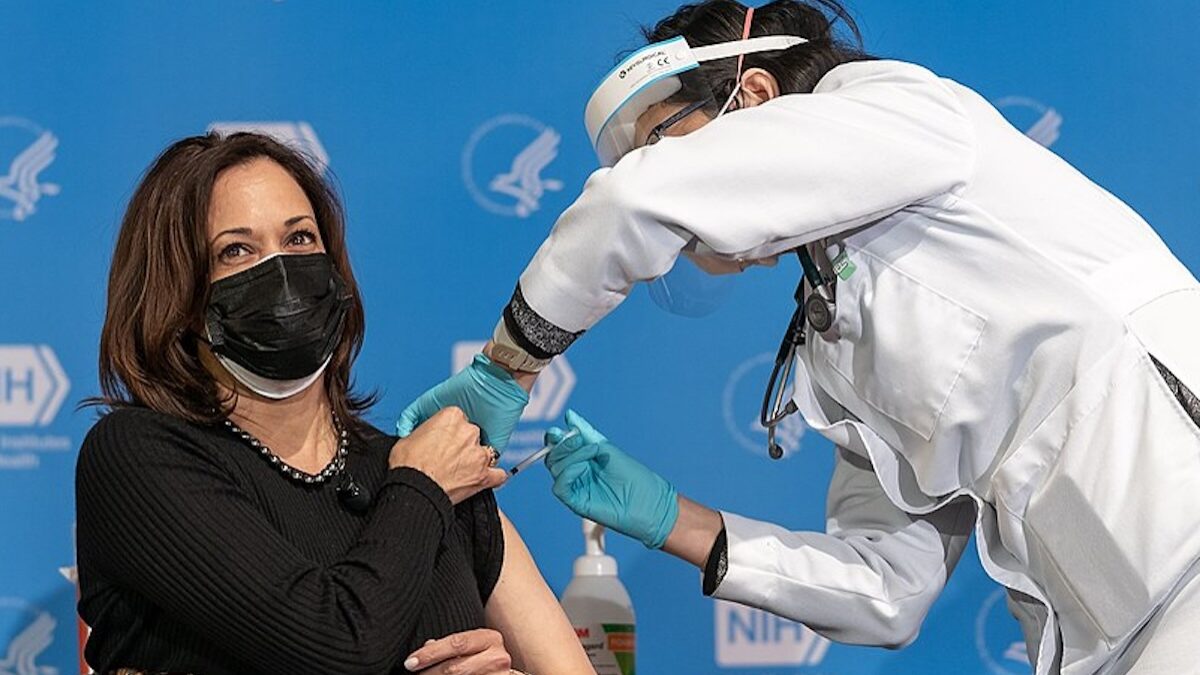Abortion is on the ballot in California next week, or at least that’s what Democratic leaders want voters to believe. Californians will vote on an amendment, Proposition 1, which would add the “fundamental right to reproductive freedom,” to the state constitution in a jurisdiction where abortion is already legal and widely popular. But that hasn’t stopped prominent Democrats from spending time and money on building support for the amendment.
Even though Proposition 1 adds no new protections to abortion, and abortion is and will remain legal in the state of California without passing the amendment, many of the country’s most prominent Democrats such as Gov. Gavin Newsom and former Secretary of State Hillary Clinton have rallied and raised millions for the “Yes on Prop 1” campaign. In addition to Proposition 1, Newsom is expected to sign more than a dozen abortion-related bills this year.
Democratic political strategist Robin Swanson told CapRadio, a Sacramento NPR affiliate, that the state’s leaders are banking on the issue not only as a way to boost voter turnout for tight races but to send a message to the rest of the country that California is an abortion “safe haven.”
“I think they’re trying to create a sense of urgency around it,” she said. “A lot of Californians feel sort of immune to these right-wing, conservative ideas affecting our lives. But seeing 50 years of precedent overturned should be a shock to our systems.”
Newsom, Clinton, and their ilk in the pro-abortion Democrat Party have warned about the disappearing “right to abortion and birth control” that would allegedly ensue if the motion fails to pass, but little has been clarified for voters on what it would look like for Prop. 1 to take effect — particularly for health care workers, court systems, and the unborn.
Expanding Late-Term Abortion
Proponents of the bill, such as California Attorney General Rob Bonta, say Proposition 1 does not lead to late-term abortions but simply enshrines the constitutional “right to abortion.” On the contrary, the language is vague and lacks specifics. In fact, one doctor who contributed to authoring the amendment is on the record explaining the vague language was “on purpose.”
Dr. Pratima Gupta, a San Diego OB-GYN who consulted on Proposition 1, told KQED they intentionally left out the word “viability” — the key descriptor in determining the limit, if any, at which point during gestation an abortion can legally be performed.
“Every pregnancy is individual and it’s a continuum,” Gupta said. “If I see a patient who has broken their bag of water at 23 weeks of pregnancy, that doesn’t mean that it’s viable or not viable.”
Under laws already on the books such as the California Reproductive Privacy Act of 2003, abortion is limited to “before the viability of the fetus.” The text of Proposition 1 would embed a “fundamental right to choose to have an abortion” without any limits or qualifications about the viability of the baby. California’s own Voter Information Guide states that the amendment “will allow unrestricted late-term abortions” and “will allow late-term abortions at taxpayer expense without limitation for any reason at any time up to the moment of birth — even when the mother’s life is not in danger, even when the healthy baby could survive outside the womb.”
Catherine Hadro, director of media relations for the “No on Prop. 1” campaign, told The Federalist that even some pro-abortion Californians are against the amendment because they fear future court battles will lead to more restrictions on California abortion laws.
“Legal experts have already cautioned the proposition’s flawed, vague language is likely to invite serious legal challenges that would cost California taxpayers millions more and allow random judges to interpret reproductive health in California,” Hadro said.
Dr. Forrest Smith is one of the longest-practicing abortionists in the United States. He has performed anywhere from 30,000 to 50,000 abortions throughout his career, over the course of 50 years. In an ad for the Center for Medical Progress, the pro-abortion OB-GYN explains that “Proposition 1 is really just the same 2003 law, but with the fetal viability clause eliminated. If Proposition 1 is put in our state constitution, abortion doctors will have a right to legally kill viable and healthy babies up to the moment of birth.”
Reconciling the Polls
It seems that post-Roe, pro-abortion Democrats and corporate media allies have intentionally muddied the waters on the abortion debate to the point that even the most extreme policies, which would normally face pushback across the spectrum, are flying under the radar. Polling around Proposition 1 reflects that confusion.
A Berkeley IGS poll conducted in mid-August found that 71 percent of California voters said they planned to vote for Proposition 1. A poll from the Public Policy Institute of California conducted in early September found that 69 percent of voters support Proposition 1 while 25 percent said they will vote no.
And yet, a poll conducted by Rasmussen Reports in October found that even though a majority of California voters support the amendment, a majority are also against late-term abortion: “only 14% of California Likely Voters believe abortion should be legal at any time during pregnancy up to the moment of birth.”
“Thirteen percent (13%) think abortion should be legal up to six months of pregnancy, while 34% say abortion should be legal up to three months of pregnancy. Nineteen percent (19%) believe abortion should only be legal during the first month of pregnancy, while 15% think all abortions should be illegal,” the Rasmussen/Capitol Resource Institute study reported.
“We are seeing both in-person and in the polls that voters reject what Proposition 1 would allow in California,” Hadro said. She added that the Rasmussen poll “illustrates support for the proposition drops when voters are educated on the realities of Proposition 1.”
Despite efforts by the pro-life movement, Democrats are doing their best to obscure those realities.
